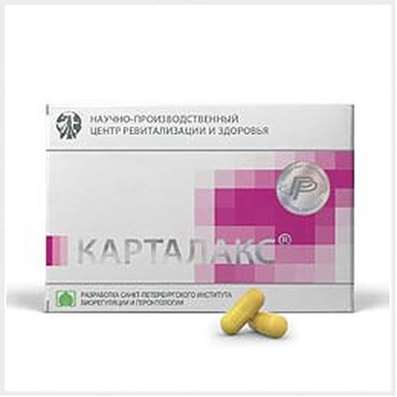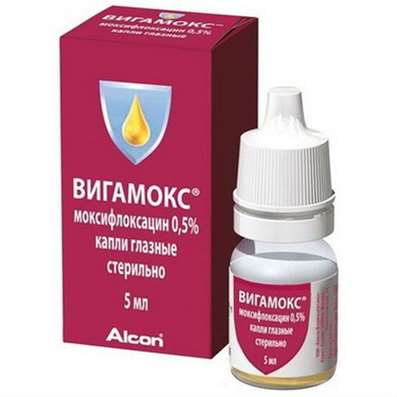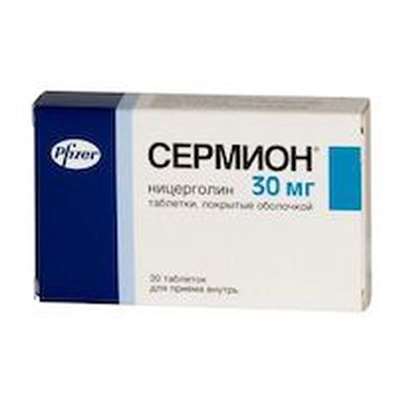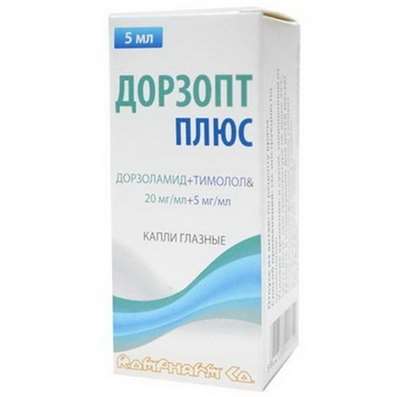Instruction for use: Adelphane-Esidrex
I want this, give me price
Active substance: Hydrochlorothiazide + Dihydralazine + Reserpine
ATX Code C02LA51 reserpine and diuretics combinations with other drugs
Pharmacotherapeutic group:
The antihypertensive combination agent (+ sympatholytic arteriodilatator + diuretic) [simpatolitikov in combination]
The antihypertensive combination agent (+ sympatholytic arteriodilatator + diuretic) [Diuretics in combination]
The nosological classification (ICD-10)
I10 Essential (primary) hypertension
Hypertension, Arterial hypertension, Arterial hypertension crisis course, Essential Hypertension
Primary hypertension, Arterial hypertension, complications of diabetes, hypertension, The sudden increase in blood pressure, Hypertensive disorders of blood circulation, hypertensive condition, hypertensive crises, hypertension, arterial Hypertension, malignant Hypertension, Hypertonic disease, Hypertensive crisis, Hypertension, accelerated hypertension, malignant hypertension, The aggravation of hypertensive disease, Transient hypertension, Isolated systolic hypertension
I15 Secondary hypertension
Arterial hypertension, complications of diabetes, hypertension, The sudden rise in blood pressure, Hypertensive disorders of blood circulation, hypertensive condition, hypertensive crises, hypertension, arterial hypertension, malignant hypertension, Hypertensive crisis, Hypertension, accelerated hypertension, malignant hypertension, hypertensive crisis, The aggravation of hypertensive disease, Transient hypertension, hypertension, Arterial hypertension, Arterial hypertension crisis course, renovascular hypertension, symptomatic hypertension, renal hypertension, Renovascular hypertension, Symptomatic hypertension
Structure and Composition
Tablets 1 tab.
reserpine 0.1 mg
dihydralazine sulphate (hydrated) 10 mg
hydrochlorothiazide 10 mg
Excipients: mannitol; corn starch; magnesium stearate; talc; disodium edetate
10 pcs in a blister; a stack of cardboard 2, 3, 5 or 25 blisters.
The drug forms
White to almost white, round, flat tablets with bevelled edges, without coating, one side of the marking "CIBA", on the other - the letters "A" and «F» with the notch between them.
pharmachologic effect
antihypertensive.
pharmacodynamics
Adelphane ®-Esidrex is a combination of three antihypertensive components having different action point of application and complementary to each other antihypertensive effects.
Reserpine - sympatholytic, causing depletion of the depot of catecholamines in the endings of postganglionic fibers in the central nervous system. As a result, the ability to deposit catecholamines disturbed for quite a long period of time. The depletion of catecholamines leads to disturbance pulse transfer at the ends of the sympathetic nerves, which in turn leads to a decrease in sympathetic tone (the parasympathetic nervous system activity is not changed). Thus, reserpine lowers high blood pressure and heart rate. Furthermore, reserpine causes sedation. Reserpine depletes reserves and other neurotransmitters, including serotonin, dopamine, neuropeptide in the central and peripheral neurons. These effects of reserpine may play a role in the implementation of its pharmacological effects and antihypertensive action. After receiving reserpine into the antihypertensive effect develops slowly; maximum action is reached only after 2-3 weeks and is maintained for a long time.
Digidralazin - arterial vasodilator, reduces the tone of smooth muscles of blood vessels (mostly arterioles) and reduces round. This mechanism of action at the cellular level remains unclear. The greater decreases in vascular resistance vessels of the heart, brain, kidneys, and other internal organs, and to a lesser degree - in blood vessels of the skin and skeletal muscles. If blood pressure reduction is not pronounced, the blood flow in the enlarged bloodstream as a whole is enhanced. Preferential expansion of arterioles and venules are not, it reduces the severity of orthostatic hypotension and improves cardiac output.
The expansion vessels, which leads to a decrease in blood pressure (DBP greater than SAD), accompanied by a reflex increase in heart rate, stroke volume and cardiac output. The reflex increase in heart rate and cardiac output can be offset by combining digidralazina with reserpine, which inhibits the sympathetic nervous system.
Hydrochlorothiazide - a thiazide diuretic, acting in the cortical segment of the loop of Henle and distal renal tubules. Inhibits the reabsorption of sodium and chlorine ions (due to the antagonistic interaction with the transport enzyme Na + Cl-) and increases the reabsorption of calcium ions (mechanism unknown). Increasing the amount and / or rate of receipt of sodium ions and water into the segment of cortical collecting ducts leads to increased secretion and excretion of potassium and hydrogen ions. In patients with normal renal function, increased diuresis observed after a single dose of hydrochlorothiazide at a dose of 12.5 mg. Increased urinary excretion of sodium and chloride ions, and a somewhat less pronounced increase in excretion of potassium ions depend on the dose of hydrochlorothiazide. After receiving the diuretic hydrochlorothiazide inside and natriuretic effects develop in 1-2 hours, peak in 4-6 hours and lasts for 10-12 hours. Diuresis caused by thiazide, first leads to a reduction of BCC, cardiac output and systemic blood pressure. Possible activation of the renin-angiotensin-aldosterone system. Prolonged use of hydrochlorothiazide maintain the hypotensive effect is provided, probably by reducing systemic vascular resistance. Cardiac output is returned to the original values, it retained a slight decrease in plasma volume and an increase in plasma renin activity.
Pharmacokinetics
The absorption and the plasma concentration
Reserpine is rapidly absorbed after oral administration. Systemic bioavailability is 50%.
Digidralazin rapidly absorbed after oral administration. The plasma dihydralazine is predominantly in the form of unchanged digidralazina and hydrazone compounds produced by metabolism of the primary substance. Digidralazina about 10% is in blood plasma in the form of hydralazine.
Hydrochlorothiazide is absorbed after ingestion by 60-80%. Time to achieve Cmax in plasma -. 1.5-3 h suction changes under the influence of food intake have no clinical significance. The range of therapeutic doses of systemic bioavailability of hydrochlorothiazide is approximately proportional to the dose. When taken regularly it pharmacokinetics of hydrochlorothiazide has not changed.
Distribution
Relative VSS reserpine averages 9.1 L / kg (range 6.4 to 11.8 l / kg). Binding to plasma proteins is more than 96% (albumin and lipoproteins).
Hydrochlorothiazide accumulates in erythrocytes. The elimination phase of the concentration in erythrocytes 3-9 times higher than in blood plasma. Binding to plasma proteins - 40-70%. VSS at a final phase of removal is 3-6 l / kg (equivalent to 210-420 liters at 70 kg body weight).
Metabolism
Reserpine is metabolized in the gut and liver. The main metabolites are metilrezerpat and trimethoxybenzoic acid.
Digidralazin largely metabolized by oxidation (to form hydrazones) and acetylation.
Hydrochlorothiazide is metabolised to a very small degree. Its only detected in trace quantities metabolite is 2-amino-4-chloro-N-benzendisulfonamid.
breeding
Excretion reserpine and its metabolites from the blood plasma occurs in two phases: T1 / 2 phase I is 4.5 hours; Phase II - 271 Average value h T1 / 2 is unchanged substance 33 hr Total clearance reserpine averages 245 ml / min... During the first 96 hours after ingestion of 8% of the dose excreted by the kidneys, mainly as metabolites, and 62% - in the intestine, mainly unchanged.
T1 / 2 is the unmodified digidralazina average 4 hours. The total clearance averaged 1450 ml / min. After oral administration, about 46% of the dose are displayed for 24 hours, mainly as metabolites, mainly through the intestine. About 0.5% of the dose is found in the urine as unchanged substance. Derivation of hydrochlorothiazide plasma dwuhfazno: T1 / 2 of the initial phase of 2 hours, the final phase (10-12 h after administration) - about 10 hours in patients with normal renal function almost exclusively excretion by the kidneys.. Overall, 50-75% of an oral dose is excreted in the urine in unchanged form.
Pharmacokinetics in specific patient groups (elderly, renal failure, liver dysfunction)
In elderly patients and patients with impaired renal function hydrochlorothiazide clearance is significantly reduced, which leads to a significant increase in blood plasma concentration. Reduced clearance, were observed in elderly patients, apparently associated with reduced renal function. In patients with cirrhosis of the liver changes in the pharmacokinetics of hydrochlorothiazide is not marked. In elderly patients and patients with impaired renal function the average therapeutic dose Adelphane ®-Esidrex drug can be lower than in younger patients with normal renal function.
Patients with impaired renal and / or liver may occur cumulation digidralazina. In patients with renal insufficiency noted slowing excretion reserpine, which, however, offset by an increase in its excretion through the intestine. In these cases, in order to avoid cumulation of reserpine in the body requires a single dose of the drug Adelphane ®-Esidrex or longer intervals between doses, taking into account the dynamics of blood pressure and tolerability.
Indications
Arterial hypertension.
Contraindications
Hypersensitivity to reserpine and related substances, or other gidrazinoftalazinam dihydralazine, hydrochlorothiazide or other sulfonamide derivatives as well as the excipients;
depression (now or in history);
Parkinson's disease;
epilepsy;
electroconvulsive therapy;
gastric ulcer and duodenal ulcer in the acute phase of ulcerative colitis;
pheochromocytoma;
concomitant or recent treatment of MAO inhibitors;
Systemic lupus erythematosus (idiopathic);
marked tachycardia and heart failure with a high cardiac output (including with thyrotoxicosis);
cardiac insufficiency due to mechanical obstruction (including the presence of aortic or mitral stenosis or constrictive pericarditis);
isolated right ventricular failure due to pulmonary hypertension ( "pulmonary" heart);
anuria, severe renal failure (Cl creatinine less than 30 ml / min);
liver failure;
refractory hypokalemia, hyponatremia, hypercalcemia and hyperuricemia with clinical manifestations;
pregnancy;
age of 18 years (effectiveness and safety have been established).
Be wary - in cases when to avoid a sharp decline in blood pressure, as This may reduce the blood flow:
Patients who have had a myocardial infarction (should not be given before the end of the stabilization period after myocardial infarction);
coronary and cerebral arteriosclerosis (as in the case of any destination antihypertensive agents with a pronounced hypotensive effect).
Outlined below precautions are not only to each component separately, but also to the drug-Adelfan® Ezidreks as a whole.
Reserpine - as reserpine increases motility and secretion in the gastrointestinal tract:
gastric ulcer and duodenal ulcer in the anamnesis;
erosive gastritis and cholelithiasis;
heart failure, sinus bradycardia, conduction disorders;
patients with recent myocardial infarction.
Digidralazina sulfate - patients with suspected coronary artery disease (caused digidralazina tachycardia can lead to angina and ECG changes indicative of myocardial ischemia, and in some cases could be linked to myocardial infarction receiving digidralazina).
hydrochlorothiazide
Patients taking ACE (especially when taking medication together with potassium or potassium-sparing diuretics);
gout and diabetes (as well as the application of other thiazides).
Pregnancy and breast-feeding
No studies on the effect of the drug- Adelphane ®-Esidrex ® on reproduction in animals.
The drug is contraindicated in pregnancy for the following reasons. Reserpine, in the case of his appointment before the birth, the newborn can cause pronounced sleepiness, swelling of the nasal mucosa and anorexia. Effects of thiazide diuretics, including hydrochlorothiazide resulted in the emergence of the fetus and newborn thrombocytopenia. Because thiazide diuretics do not prevent the appearance of and have no effect on the severity of the manifestations of toxemia of pregnancy (edema, proteinuria, arterial hypertension), they should not be used for this indication.
Reserpine, digidralazin and hydrochlorothiazide passes into breast milk. A newborn baby reserpine can cause a reaction as described above. Hydrochlorothiazide may inhibit lactation. Apply medication Adelfan®-Ezidreks during lactation is not recommended.
Side effects
Components Adelphane ®-Esidrex drug present in it at lower doses, compared to the same doses of drugs prescribed for the treatment of arterial hypertension alone. Nevertheless, the following may occur undesirable phenomena that are characteristic of individual components of the preparation. We used the following criteria for evaluating the frequency of occurrence of adverse events: often (more than 10% of patients); sometimes (1-10%), rare (0.001-1%); in some cases (less than 0.001% of patients).
Reserpine
On the part of the digestive tract: sometimes - diarrhea, dry mouth, increased secretion of gastric juice, increased salivation; rarely - nausea, vomiting, increased appetite, ulceration; in some cases - gastro-intestinal bleeding.
Since the cardiovascular system: sometimes - sinus bradycardia, edema; rarely - arrhythmias, chest pain suggestive of angina pectoris; orthostatic hypotension, flushing; in some cases - syncope, heart failure, cerebrovascular accident.
From the respiratory system: sometimes - swelling of the nasal mucosa, shortness of breath; in some cases - nosebleeds.
On the part of the central nervous system: sometimes - dizziness, depression, irritability, nightmares, fatigue; rarely - extrapyramidal disorders (including Parkinson's), headache, anxiety, impaired concentration, stupor, disorientation; in some cases - of the brain edema.
From the urogenital system: rarely - a violation of potency and ejaculation; in some cases - dysuria, glomerulonephritis.
On the part of the endocrine system and metabolism: sometimes - increase in body weight; rarely - increase the secretion of prolactin, galactorrhea, gynecomastia; in some cases - swelling of the mammary glands.
From the senses: sometimes - blurred vision, conjunctival hyperemia, tearing; in some cases - hearing loss.
Other: rarely - eczema, itching, decreased libido; in some cases - purpura, anemia, thrombocytopenia.
digidralazina sulfate
Since the cardiovascular system: often - tachycardia, palpitations; sometimes - flushing, marked reduction in blood pressure, angina pectoris; rarely - edema, heart failure.
On the part of the digestive tract: sometimes - dyspepsia, nausea, vomiting, diarrhea.
Liver: rare - the jaundice, abnormal liver function, hepatitis.
On the part of the central and peripheral nervous system: often - headache; sometimes - dizziness; seldom - agitation, anorexia, irritability, anxiety state, anxiety, peripheral neuritis, paresthesia (these side effects are eliminated in the appointment of pyridoxine); in some cases - depressed mood.
Hematopoietic system: rarely - anemia, leukopenia, thrombocytopenia.
Allergic and immunopathological reactions: seldom - a lupus-like syndrome.
Other: sometimes - arthralgia; rarely - weight loss, fever, fatigue, skin rash, pruritus.
hydrochlorothiazide
From the water-electrolyte balance and metabolism: often - mainly at high doses, hypokalemia, increased level of lipids in the blood; sometimes - hyponatremia, hypomagnesemia, hyperuricemia; seldom - hypercalcemia, hyperglycemia, Glycosuria, increased metabolic abnormalities in diabetes; in some cases - gipohloremichesky alkalosis.
Dermatological reactions: sometimes - rash, skin rash; rarely - photosensitivity; in some cases - necrotizing vasculitis, toxic epidermal necrolysis, cutaneous manifestations volchanochnopodobnogo syndrome, exacerbation of cutaneous manifestations of lupus.
On the part of the gastrointestinal tract, liver and pancreas: sometimes - loss of appetite, nausea, vomiting; rarely - discomfort, constipation, diarrhea, intrahepatic cholestasis, jaundice; in some cases - pancreatitis.
Since the cardiovascular system: sometimes - orthostatic hypotension (which may be exacerbated by the simultaneous use of alcohol and while the use of anesthetics and sedatives); rare - arrhythmia.
On the part of the central nervous system and sensory organs: rarely - headache, dizziness, sleep disturbances, depression, paresthesia; blurred vision (especially in the first week of treatment).
Hematopoietic system: rarely - thrombocytopenia, sometimes with purpura; in some cases - leukopenia, agranulocytosis, inhibition of bone marrow hematopoiesis, hemolytic anemia.
Other: sometimes - impotence; in some cases - hypersensitivity reactions, disorders of the respiratory system, including pneumonitis and pulmonary edema.
Interaction
The hypotensive effect Adelphane ®-Esidrex drug increases while receiving other antihypertensive agents: guanethidine, alpha-methyldopa, beta-blockers, vasodilators, CCBs, ACE inhibitors.
Chance of a number of interactions associated with the individual components of the preparation.
hezerpin. You must undo the MAO inhibitors for at least 14 days prior to initiating therapy with reserpine. If necessary, the appointment of MAO inhibitors patients treated with reserpine, MAO inhibitors should be administered at least 14 days after discontinuation of reserpine. With simultaneous application of reserpine and MAO inhibitors may be hyperactive, hypertensive crisis.
Reserpine enhances the depressant effect on the central nervous system of alcohol, funds for general anesthesia, some antihistamines, barbiturates and tricyclic antidepressants. Reserpine reduces the effect of levodopa. Concomitant use of reserpine and tricyclic antidepressants may weaken hypotensive effect of reserpine.
Reserpine should be lifted for a few days prior to elective surgery to avoid excessive reduction of blood pressure during general anesthesia. Purpose of reserpine in combination with antiarrhythmic agents or digitalis preparations may cause sinus bradycardia.
Reserpine may enhance the effects of epinephrine (adrenaline) or other sympathomimetic agents (be careful at simultaneous application with them containing antitussives, nasal drops, eye drops).
Digidralazina sulfate. The simultaneous use of tricyclic antidepressants, antipsychotics, and ethanol-containing agents may potentiate the hypotensive effect of digidralazina. Appointment digidralazina shortly before or shortly after the appointment of diazoxide may cause a marked reduction in blood pressure.
Hydrochlorothiazide. With simultaneous use of hydrochlorothiazide and drugs lithium may increase the concentration of lithium in the blood, so in this case, the regular control of the concentration of lithium in the blood. In those cases where the lithium drugs cause polyuria, hydrochlorothiazide can cause paradoxical antidiuretic effect.
Hydrochlorothiazide may enhance the effects of non-depolarizing muscle relaxants.
Hypokalemic effect caused by diuretics, may be increased by concomitant use of corticosteroids, ACTH, amphotericin, carbenoxolone. Hypokalemia and hypomagnesemia (undesirable effects of thiazide diuretics) can contribute to the development of cardiac arrhythmias in patients receiving cardiac glycosides.
In the application of hydrochlorothiazide in patients with diabetes mellitus may require adjustment of doses of insulin and oral hypoglycemic agents. Co-administration of NSAIDs (including indomethacin) may weaken the diuretic, natriuretic and antihypertensive effects of hydrochlorothiazide. There are some reports of worsening renal function in susceptible patients.
Absorption of hydrochlorothiazide is impaired in the presence of anion exchange resins. Hydrochlorothiazide absorption from the gastrointestinal tract while single application cholestyramine and colestipol reduced by 85 and 43%, respectively, due to binding to these compounds.
The simultaneous use of thiazide diuretics, including hydrochlorothiazide, may increase the risk of hypersensitivity reactions to allopurinol, increase the risk of side effects of amantadine, enhance the hyperglycemic effect of diazoxide, reduce the renal excretion of cytotoxic drugs (including cyclophosphamide, methotrexate) and enhance their myelosuppressive effects.
Anticholinergic drugs (including atropine, biperiden) may increase the bioavailability of hydrochlorothiazide due to reduced gastrointestinal motility and stomach emptying rate.
Simultaneous administration of hydrochlorothiazide, with vitamin D or calcium supplementation may increase the level of calcium in the blood.
With simultaneous use of hydrochlorothiazide and cyclosporine increases the risk of developing hyperuricemia and gout.
There are reports on the development of hemolytic anemia while receiving hydrochlorothiazide and methyldopa preparations.
Since the appointment of hydrochlorothiazide with carbamazepine may develop hyponatremia, patients receiving drug-Adelphane® Esidrex with carbamazepine should be informed about the possible manifestations of hyponatremia and to ensure proper control.
Dosing and Administration
Inside, during a meal, and drinking water.
The dose should be selected individually. Treatment starts with destination minimal dose that can be gradually (no more frequently than every 2-3 weeks) increase, depending on the patient's response to treatment. The daily dose is usually in Table 1-3. The maximum daily dose - 3 Table. Multiplicity taking the drug - 2-3 times a day.
If adequate control of blood pressure can not be reached, the treatment should be reviewed and possibly switch to another drug pharmacological group (beta-blockers, CCBs, ACE inhibitor).
Use in patients with impaired renal function, liver, as well as elderly patients. The above doses are recommended for patients with normal renal function. In elderly patients and patients with hepatic impairment and / or mild renal impairment a single dose of the drug or the interval between his appointment should be set with caution, taking into account the desired clinical response to treatment and tolerability.
Overdose
Symptoms may be headache, dizziness, drowsiness, confusion, coma, extrapyramidal disorders, convulsions, paresthesia, persistent miosis. There may be nausea, vomiting, diarrhea. There were also reports of tachycardia, marked reduction in blood pressure, collapse; sometimes - on myocardial ischemia with such manifestations as angina and arrhythmia. You may experience respiratory depression, disruption of water and electrolyte balance, muscle weakness, muscle cramps (especially calf), oliguria.
Treatment: If the patient is conscious, induce vomiting or to gastric lavage, activated charcoal to appoint. In marked decrease in blood pressure of the patient must be put with raised feet, shows the introduction of plasma substitutes and correction of electrolyte disorders; optionally with caution - vasoactive agents. In the case of diarrhea - anticholinergic. In the case of seizures shows the use of anticonvulsants - slow in / diazepam. In the case of pronounced respiratory depression - AV. The duration of patient monitoring is not less than 72 hours since reserpine has a prolonged effect.
special instructions
If signs of depression medication should be lifted immediately, as there is the risk of suicidal acts. Depression provoked by reserpine (especially in cases of high-dose-Adelfan® Ezidreks drug), can be severe enough to provoke suicidal acts. It can persist for several months after discontinuation of the drug.
Application digidralazina may cause sodium and water retention in the body and hence to the development of edema and reduction in urine output.
Required to systematically monitor the condition of patients with impaired liver function, given the possibility of occurrence of the liver rare but serious side effects digidralazina. It should also be borne in mind that even minor violations of water-electrolyte balance caused by thiazide diuretics may provoke a hepatic coma, especially in patients with liver cirrhosis. Currently, there were fewer reports of cases of volchanochnopodobnogo syndrome associated with receiving digidralazina. Mild forms of this syndrome is manifested arthralgia, sometimes accompanied by fever and skin rash, remove the drug, these symptoms disappear on their own. In more severe cases, the clinical picture is similar to the manifestations of systemic lupus erythematosus. Complete disappearance of the symptoms can only be achieved with long-term treatment of GCS. The incidence of this syndrome is directly dependent on the dose and duration of treatment. Therefore for long-term maintenance therapy is recommended to use the minimum effective dose.
During treatment digidralazina it seems appropriate to determine the antinuclear factor in the blood plasma every 6 months. In case of detection of antinuclear factor, should systematically determine its titles. If you develop clinical manifestations volchanochnopodobnogo syndrome, the drug should be discontinued immediately. Reserpine should cancel at least 7 days prior to electroconvulsive therapy.
Cancel reserpine before surgery is not a guarantee that during the operation will not have hemodynamic instability. It is important to warn the anesthesiologist that the patient takes reserpine, that he considered it in the management of the patient (known cases of blood pressure lowering in patients receiving Rauwolfia preparations). In the course of surgical intervention in patients receiving digidralazin, there may be a marked reduction in blood pressure.
Against the background of developing hypokalemia hydrochlorothiazide. Hypokalemia can sensitize the myocardium or enhance response of the heart's reaction to the toxic effects of digitalis drugs. The risk of hypokalemia increased in cirrhosis, rapidly developing diuresis, insufficient intake of potassium from food, concomitant therapy with corticosteroids, beta-adrenoceptor stimulants, or ACTH. In order to timely detect possible electrolyte imbalance is necessary to determine the content of electrolytes in the plasma at the beginning of treatment and at regular intervals during treatment.
Non-specific symptoms of electrolyte balance disorders observed in some cases, were dry mouth, thirst, weakness, drowsiness, restlessness, muscle pain or cramps, muscle weakness, decreased blood pressure, oliguria, tachycardia, nausea.
Thiazide diuretics cause a decrease in calcium excretion. A few patients receiving long-term thiazide diuretics, were found pathological changes in the parathyroid gland, accompanied by hypercalcemia and hypophosphatemia. In case of hypercalcaemia is required to conduct additional tests to clarify the diagnosis. There were no complications, which are usually associated with hyperparathyroidism, such as the formation of kidney stones, bone resorption, peptic ulcer.
Thiazide diuretics cause an increase in urinary excretion of magnesium, which may result in hypomagnesemia.
When used in high doses thiazide diuretics may cause a decrease in glucose tolerance and result in increased concentrations of plasma cholesterol, triglycerides and uric acid.
Application reserpine effect on the results of determination in the urine of 17-ketosteroids and 17 gidroksikortikosteroidov colorimetric method, leading to an underestimation of the results.
Effects on ability to drive vehicles and use machines. Adelphane®-Esidrex can disrupt a patient's ability to fast reactions, especially at the beginning of treatment. As for the appointment of other antihypertensive drugs, patients, managers of vehicles and machinery should be warned about the possibility of reducing the rate of psychomotor reactions, and the need to be careful.
Conditions of supply of pharmacies
On prescription.
Storage conditions
In the dark and dry place at a temperature no higher than 30 ° C.
Keep out of the reach of children.
shelf life
4 years.
Do not use beyond the expiration date printed on the package.

 Cart
Cart





